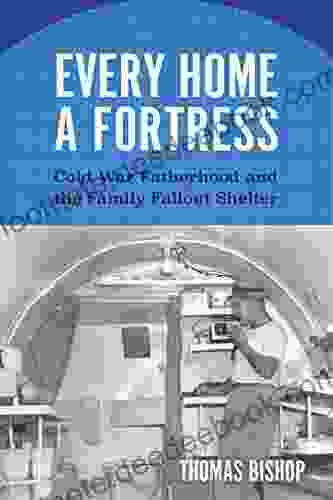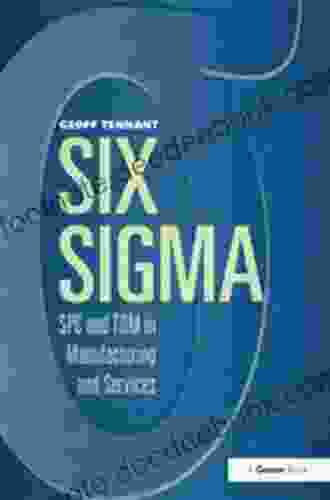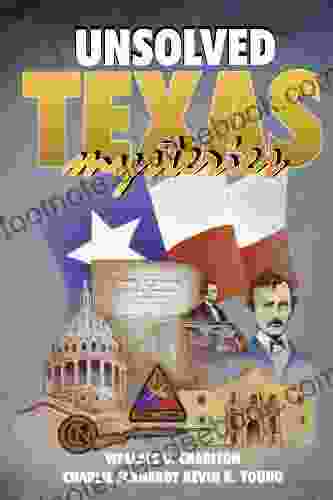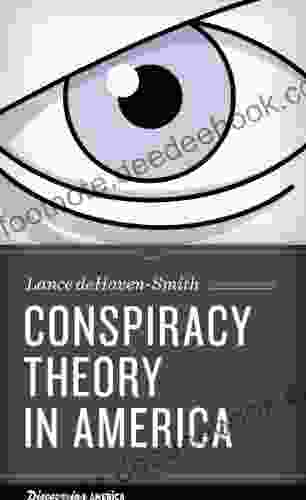Cold War Fatherhood and the Family Fallout Shelter: Culture and Politics in the Atomic Age

5 out of 5
| Language | : | English |
| File size | : | 2294 KB |
| Text-to-Speech | : | Enabled |
| Screen Reader | : | Supported |
| Enhanced typesetting | : | Enabled |
| Word Wise | : | Enabled |
| Print length | : | 240 pages |
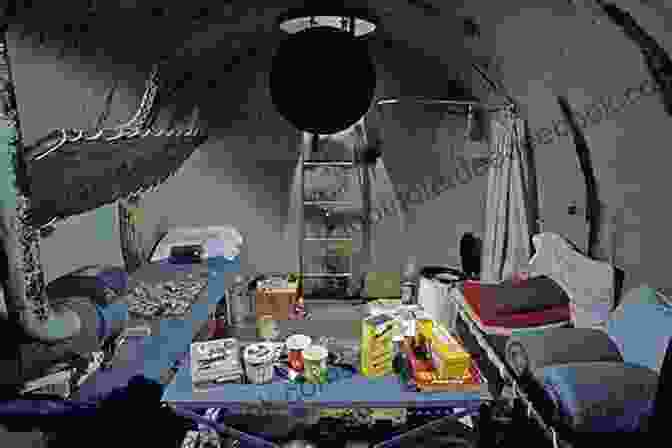
During the Cold War, the threat of nuclear war loomed large over American society. In response, many families built fallout shelters in their homes in the hopes of surviving an atomic blast. These shelters were often stocked with food, water, and other supplies, and they were designed to protect occupants from radiation and fallout.
The family fallout shelter phenomenon was a complex one, with both cultural and political dimensions. On the one hand, it reflected the deep-seated fears of nuclear war that gripped American society during the Cold War. On the other hand, it also reflected the changing roles of men and women in the post-war era, as well as the growing distrust of government.
The Cultural Significance of Family Fallout Shelters
Family fallout shelters were a powerful symbol of the Cold War era. They represented the fear of nuclear war that was ever-present in the minds of Americans. They also represented the hope that, even in the face of such a devastating threat, families could still find a way to survive.
Fallout shelters were often seen as a masculine domain. They were typically built by fathers, and they were often equipped with tools and supplies that were associated with masculinity, such as guns and radios. This reflected the traditional gender roles of the time, which saw men as the protectors of their families.
However, the family fallout shelter also challenged traditional gender roles. In order to survive in a fallout shelter, women needed to be able to perform tasks that were traditionally seen as masculine, such as cooking, cleaning, and nursing. This helped to break down the rigid gender roles of the time, and it paved the way for a more egalitarian future.
The Political Significance of Family Fallout Shelters
The family fallout shelter phenomenon also had a significant political dimension. It reflected the growing distrust of government that was widespread in American society during the Cold War. Many Americans felt that the government was not ng enough to protect them from the threat of nuclear war. They saw fallout shelters as a way to take matters into their own hands and to ensure their own survival.
The government's response to the family fallout shelter phenomenon was complex. On the one hand, the government encouraged families to build fallout shelters. They provided information on how to build and stock shelters, and they even offered financial assistance to families who could not afford to build their own shelters.
On the other hand, the government also recognized that the family fallout shelter phenomenon was a sign of the public's distrust of the government. In response, the government took steps to improve its public relations efforts and to reassure Americans that it was ng everything it could to protect them from the threat of nuclear war.
The Legacy of Family Fallout Shelters
The family fallout shelter phenomenon is a fascinating and complex chapter in American history. It reflects the deep-seated fears of nuclear war that gripped American society during the Cold War, as well as the changing roles of men and women in the post-war era.
Today, family fallout shelters are a reminder of the Cold War era. They are a testament to the fears and hopes of a generation that lived under the shadow of nuclear war.
5 out of 5
| Language | : | English |
| File size | : | 2294 KB |
| Text-to-Speech | : | Enabled |
| Screen Reader | : | Supported |
| Enhanced typesetting | : | Enabled |
| Word Wise | : | Enabled |
| Print length | : | 240 pages |
Do you want to contribute by writing guest posts on this blog?
Please contact us and send us a resume of previous articles that you have written.
 Page
Page Chapter
Chapter Text
Text Library
Library E-book
E-book Magazine
Magazine Paragraph
Paragraph Sentence
Sentence Bookmark
Bookmark Shelf
Shelf Glossary
Glossary Foreword
Foreword Annotation
Annotation Manuscript
Manuscript Codex
Codex Bestseller
Bestseller Classics
Classics Biography
Biography Memoir
Memoir Reference
Reference Encyclopedia
Encyclopedia Resolution
Resolution Librarian
Librarian Catalog
Catalog Borrowing
Borrowing Stacks
Stacks Archives
Archives Periodicals
Periodicals Research
Research Scholarly
Scholarly Lending
Lending Reserve
Reserve Academic
Academic Reading Room
Reading Room Special Collections
Special Collections Interlibrary
Interlibrary Study Group
Study Group Dissertation
Dissertation Theory
Theory Textbooks
Textbooks Edward Lear
Edward Lear John Agresto
John Agresto Kirsty Manning
Kirsty Manning Sebastian A Jones
Sebastian A Jones Steven J Brams
Steven J Brams Anthony Gregory
Anthony Gregory Haleh Liza Gafori
Haleh Liza Gafori Be Kelly
Be Kelly Judy Froman
Judy Froman Lisa Darcy
Lisa Darcy Daria White
Daria White Gireesh Haridas
Gireesh Haridas Jeff Shaara
Jeff Shaara Tricia Hayne
Tricia Hayne Antony Edmonds
Antony Edmonds Chris Chaos
Chris Chaos Ross A Mccoubrey
Ross A Mccoubrey Amy J Heineke
Amy J Heineke Rob Hart
Rob Hart Peter Lance
Peter Lance
Light bulbAdvertise smarter! Our strategic ad space ensures maximum exposure. Reserve your spot today!

 Samuel Taylor ColeridgeGertie Milk: A Cat's Tale of Courage and Resilience - The Great Keeper Rescue
Samuel Taylor ColeridgeGertie Milk: A Cat's Tale of Courage and Resilience - The Great Keeper Rescue Chadwick PowellFollow ·17.6k
Chadwick PowellFollow ·17.6k Brody PowellFollow ·18.5k
Brody PowellFollow ·18.5k Fabian MitchellFollow ·15.2k
Fabian MitchellFollow ·15.2k Greg CoxFollow ·5.1k
Greg CoxFollow ·5.1k Demetrius CarterFollow ·10.9k
Demetrius CarterFollow ·10.9k Cormac McCarthyFollow ·19.4k
Cormac McCarthyFollow ·19.4k Bryan GrayFollow ·5.1k
Bryan GrayFollow ·5.1k Arthur Conan DoyleFollow ·18.5k
Arthur Conan DoyleFollow ·18.5k
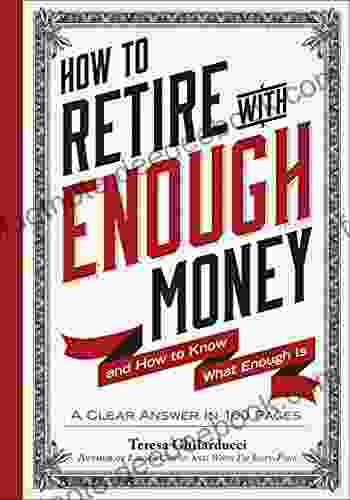
 Allen Ginsberg
Allen GinsbergUnveiling the True Meaning of Enough: A Comprehensive...
: In the relentless pursuit of progress and...

 Clay Powell
Clay PowellHawker Hunter: The Jet Fighter that Shaped British...
Nestled in the halls of aviation...
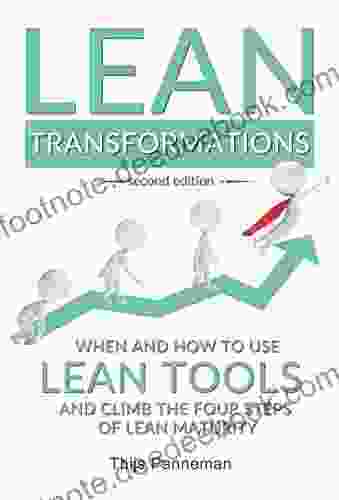
 Alec Hayes
Alec HayesWhen and How to Use Lean Tools and Climb the Four Steps...
Lean is a management...
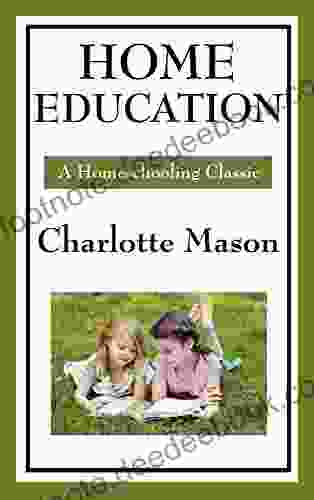
 Trevor Bell
Trevor BellVolume of Charlotte Mason Original Homeschooling: A...
Charlotte Mason's original...

 John Parker
John ParkerAscending Tristan da Cunha: A Comprehensive Guide to...
Prepare yourself for an extraordinary journey...
5 out of 5
| Language | : | English |
| File size | : | 2294 KB |
| Text-to-Speech | : | Enabled |
| Screen Reader | : | Supported |
| Enhanced typesetting | : | Enabled |
| Word Wise | : | Enabled |
| Print length | : | 240 pages |


